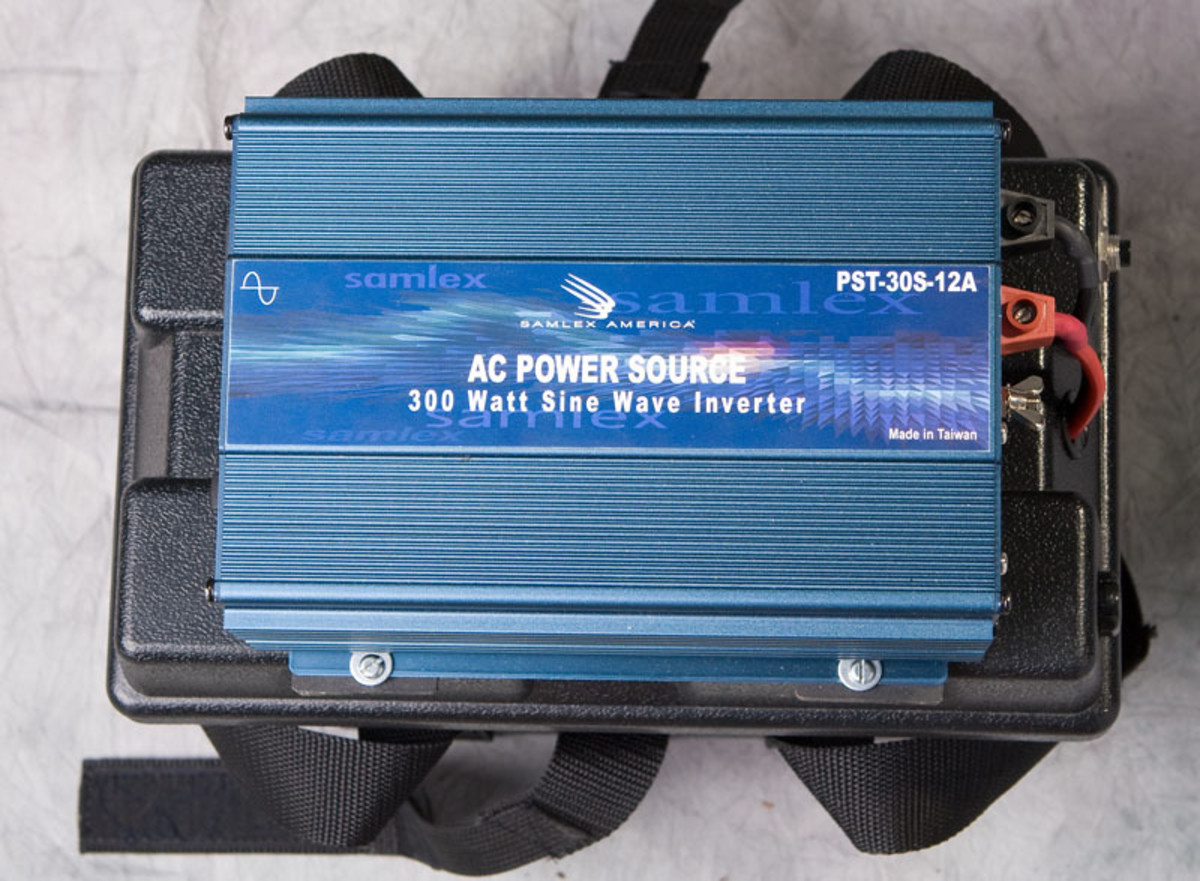All this comfort is the courtesy of the inverter. It is a device that converts direct current (DC) from batteries to alternating current (AC). Now that most appliances use AC power, it is gaining high popularity over DC. This means without an inverter, you can’t use most appliances unless the main power recovers. Note: Inverters are the opposite of converters, in that converters change power from AC to DC. Inverters are convenient but not 100% efficient. Similar to any electronic device, it draws power when connected to the battery. Finding your battery discharged when you want to use it may be very unpleasant. Consider the following ideas to prevent the inverter from draining your battery.
Use a Battery With High Capacity
The capacity of a battery refers to the amount of electric current flowing for one hour, termed ampere-hour (AH). A battery whose AH is high will supply enough power to the inverter. This means the inverter will take a while before it drains the battery. Similar to any machine, an inverter also consumes power when working. Fortunately, a high-capacity battery will supply enough power to compensate for what inverter consumes while working. So you really need a high-capacity battery.
Reduce the Load on the Inverter
Load refers to the electrical devices connected to the inverter, such as TVs and light bulbs. A high load means the inverter will be required to supply a lot of power. As a result, it will take a huge amount of power from the battery, eventually draining the battery. Reducing the load on the inverter means it will only take a small amount of power. So, the chances of it straining the battery will be very minimal and thus it will not be drained.
Switch Off the Inverter When Not in Use
Once your appliances are not in use, always ensure you switch off the inverter. This helps to preserve the power in two ways: It is now clear the chances of the battery being drained will be low when your inverter is off.
Do Not Run Inverter Unless Car Engine is Running
If you use an inverter in your car, always ensure it is off until the engine starts running. Why? When the engine is running, the alternator charges the battery and also supplies enough power to the inverter at the same time. This means only a little amount of power will be taken from the battery, so the chances of the battery being drained will be extremely low.
Avoid Using Thin Cables
Thin cables have a small cross-section area compared to thick cables. This means only a few electrons will be available to conduct electric current on a thin cable. As a result, there is a very high resistance against power flow. If a thin cable is used, only a small amount of power may reach the inverter. The outcome would be the inverter will drain the battery in the process of drawing power. This is the opposite if you use a thick cable in the connection.
Use Short Cables
The length of a cable is inversely proportional to resistance against power flow. This means the shorter the cable the lower the resistance against power flow. In a connection that has long cables, power supplied is lost due to the electrical resistance. As a result, the inverter may drain the battery in the process of drawing more power. In order to ensure you use a shorter cable, install the two at a close distance and in the long run, the inverter will not drain the battery.
Use an Inverter With a Saving Mode
An inverter with a saving mode will help you to set the minimum load. Within the set load, the inverter will stay awake and supply power to the appliances. Once it senses the load is lower than the threshold load set, it goes to a lower power mode “sleep”. In the lower power mode, the power output of the inverter is off. Amazingly, in the lower power mode, it will send a few AC signals to check whether there is a load that meets the threshold load. If there is one, it returns to its full operation. This way, all the possibilities of draining the battery will be minimal, because the inverter will only work in the presence of a load. It is possible to keep the inverter from draining the battery only if you practically adhere to the measures shared. Hope this article will be of great help. This content is accurate and true to the best of the author’s knowledge and is not meant to substitute for formal and individualized advice from a qualified professional.


